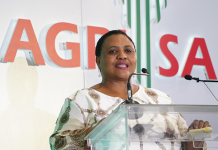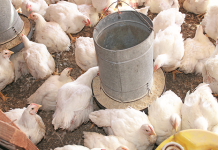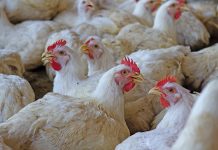Recently, I found myself sitting at the back of a full hall where the Premier Pork Producers’ organisation was holding its annual symposium. I could not help noticing that the delegates, mostly pig farmers, were almost entirely white males. Fewer than 5% were black males.
And women? The only ones I saw worked either for the South African Pork Producer’s Organisation (Sappo) or for companies exhibiting at the symposium. I had to ask myself: what has happened to transformation in this industry?
To begin with, the fact that fewer than 5% of the pig farmers in that room were black, was a bitter pill to swallow.
During the tea break, I asked a few people where all the black pig farmers were. I then discovered the truth: that there are in fact very few black commercial pig producers in the country. The vast majority of black pig farmers run very small operations that make no significant contribution to the total output of the South African pork industry. Many sell their products on the informal market, and therefore don’t have to produce pork according to industry regulations.
The reason for this is that it is very expensive for smallholder farmers to set up a pig farm. Establishing a 250-sow unit that complies with required commercial standards costs several million rands. And 250 sows are not really enough to make a good living; they are only a starting point.
A serious gender imbalance
The issue of transformation is not only about race, of course. With August being the month where we salute women, I would have loved to see a few female farmers, both black and white, at the pork producers’ meeting. Their absence surprised me; I’ve met my fair share of female farmers and had always believed that more women were involved in pig farming. I’ve written a number of Farmer’s Weekly articles on small-scale pig farmers, and the majority of these were women. But when it comes to commercial farming, the reality is very different. There are fewer than 10 black commercial pig farmers (with 200+ breeding sows) in the entire country, and of these, just one is a woman!
Female farmers
Although women contribute between 60% and 80% of the labour in food production, very few are actually producers. According to the UN’s Food and Agricultural Organisation, women now constitute the majority of smallholder farmers in sub-Saharan Africa, providing most of the labour and managing a large part of farming activities on a daily basis. I don’t know why more women are not producers, but I doubt that it has anything to do with their capability. Many of the women I meet are more than capable of running commercial operations.
During lunch I met an old acquaintance, Anna Phosa, whom I had first met in 2010. She runs a commercial operation with 250 sows in the Vaal Triangle. She also has an abattoir that supplies several Pick n Pay stores. I’ll be visiting her farm soon and will have more to tell about this extraordinary woman.











